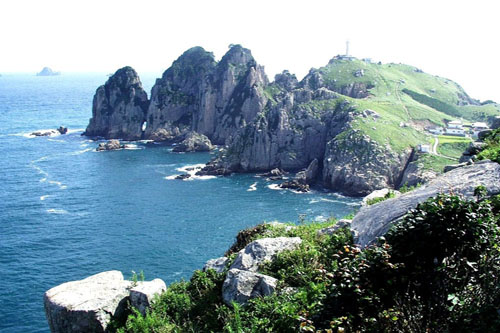<#320 World Campus>
Dokdo Dispute between Japan and Korea
By Park So-yeon, Overseas Correspondent, Japan
Korea and Japan are heading for a diplomatic showdown since Lee Myung-bak visited Dokdo. Since I am studying at Osaka University in Japan from last year, I have seen how Japanese people and the media react regarding this matter. For last few weeks, Lee Myung-bak’s visit has covered the first page of newspapers and every day the TV news has been filled with Dokdo issues. The reason why is that this visit drew an angry response from Japan. Recently when Japanese ultranationalists talked about this Dokdo issue on TV, it was very hard to stand and listen to their claims that there should be a law to bring this Dokdo island dispute to International Court of Justice because Japan pays the second most tax in the world. There were over 60 Japanese people from Shimane-ken who were killed by Korean people on Dokdo, and Japan has taken many things away from Korea, China and other countries because they lost in World War Ⅱ. The ultranationalists from the rightwing Japanese group were not ashamed of the fact Japan brought on war, they would rather say that “It is fair that the strong prey upon the weak in international society.”

I was almost upset with this unreasonable claim from them, but since I am no longer studying in Japan, I have learned that I would be better off to understand their nationalism, too. It doesn’t mean that I agree with what they said about all the historical disputes between Korea and Japan. The Japanese media has its role in Japan. At the same time, it is really hard to stick into a neutral position in the media to catch people’s attention on it.
Of course, not all Japanese people are like the ultranationalists. One thing I realized from studying in Japan is how Japanese people are indifferent about learning about their history. The attitude of learning about the history of the Japanese people was too passive. Even at Osaka University, which is the one of top five schools in Japan, I could meet many Japanese students who don’t have a common knowledge about Japanese history after the Edo period. It seemed like no matter what the history books tell you even if it’s the wrong history, I would accept it. When I was watching the ultranationalists’ claim on TV, I was worried how convincing it will be for Japanese people and how it could make them think, excluding their subjective view on this matter.
On August 16th, there were activists with rightwing groups protesting in front of the Korean Embassy in Tokyo. They protested to cancel Korean TV dramas after Lee Myung-Bak’s visit and urged the Japanese emperor to apologize for Tokyo’s wartime crime. They provoked Japanese rightwing groups rallying on the street and Anti-Korean sentiment is growing in Japan. The protesters occupied the road in front of the embassy and shouted “President Lee Myung-bak must apologize to the emperor!” as well as calling on Koreans to leave Japan. After this protest, I could see the tighter security in front of the Korean Embassy in Osaka, too. Likewise, Anti-Korean sentiment spreads very fast in Japan, and it could affect not only Koreans living in Japan but also Korean-Japanese who work in economics or tourism. I believe that Lee Myung-Bak’s Dokdo visit was not a diplomatically appropriate idea for the relationship between Japan and Korea, even though he wanted the public’s support before stepping down from his position.
I understand that the matter of Dokdo can no longer be dealt with through quiet responses. For Korea, Dokdo is not only a tiny islet but it is emblematic of bringing closure to an unjust chapter in our history with Japan and of the full consolidation of Korea’s sovereignty. It is a matter that calls for a public and dignified response not like how Lee Myung-bak made this visit unofficial. Instead of provoking the Japanese media and government, Korean government should put more efforts to debunk the unjust actions of the Japanese Government to the world community and the Japanese people. I believe actions endanger the friendly relationship between Korean and Japan as well as peace in East Asia.
박소연 해외통신원
tribune@cnumedia.com

